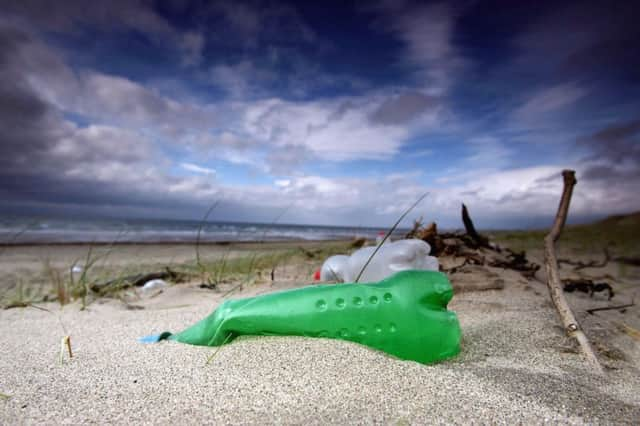Leaders: Bottle deposits | Welby fervour unhelpful


Whether by pioneering initiatives which have been later adopted by our southern neighbours, or successfully adopting schemes from other parts of the UK, we are now healthier, safer and more environmentally aware as a result.
The smoking ban in public places, plastic bag charge and lower drink drive limit are all regarded as having been positive changes, despite meeting with initial opposition.
Advertisement
Hide AdAdvertisement
Hide AdScotland now has another opportunity to advance the wider social good, by charging shoppers a refundable deposit on cans and bottles. Supporters argue that it would help curb the scourge of litter from such containers, which blight so much of both our urban and rural landscapes.
This would be another bold move, especially since Irn-Bru maker AG Barr will scrap its traditional glass bottle deposit scheme in less than a week’s time.
That will seem ironic as we survey the heaps of festive detritus that surrounds us on Boxing Day, with more to come after the bells next week.
As we report today, the deposit proposal has met with backing from a wide range of environmental groups, from bird lovers to ramblers, who claim it could play an “integral part” of the fight against litter.
However, there are also considerable forces marshalled against the plan, including powerful lobby groups representing retailers and the packaging industry.
More surprisingly, they have been joined by anti-litter group Keep Scotland Beautiful, which has pointed to the lack of “robust evidence” that a deposit scheme would lead to “any significant reduction in litter”.
The group has also argued that the cost of setting up a scheme meant it was “not the right solution to the litter problem in Scotland at this time”.
So what should the Scottish Government do? Supporters of deposits, such as the Association for the Protection of Rural Scotland, have produced polling evidence that eight out of ten people back them.
Advertisement
Hide AdAdvertisement
Hide AdHowever, if ministers want to show leadership, they must properly investigate and produce a well-evidenced case.
They must spell out how a scheme would work out in practice, how it would affect people, and also highlight how the advantages would outweigh the disadvantages.
Having taken on the retail and packaging industries over the plastic bag charge, what the government must not do is be deterred by the noise they are making on this one.
If introducing a deposit scheme was easy, it would have become universal here long ago. But similar schemes are widespread, from Scandinavia to the United States and Australia, as government officials have acknowledged. Campaigners challenge potential supporters with their “Have You Got the Bottle?” slogan. The last thing ministers should do is bottle out of this argument.
Welby’s fervour may be unhelpful
CHRISTMAS is traditionally a time for reconciliation and forgiveness, but when it comes to Islamic State (IS) there was a starkly different tone adopted by two Christian leaders yesterday.
Pope Francis made an indirect reference to the group in his Christmas Day prayer, couching it in terms of mercy, which he will make a major theme during the coming year.
He said: “Only God’s mercy can free humanity from the many forms of evil, at times monstrous evil, which selfishness spawns in our midst.”
What made those balanced comments by the Pope remarkable was how different in approach they were to those of the head of the Church of England.
Advertisement
Hide AdAdvertisement
Hide AdThe Archbishop of Canterbury, in his Christmas Day sermon, didn’t mince his words, comparing IS to Herod, an apocalypse and the “elimination” of Christianity in the Middle East.
Both men made it clear that the actions of IS are abhorrent, but the way they each reflected that could not be more different.
Denouncing IS is one thing, but some of the language used by the Most Reverend Justin Welby could be viewed as approaching the incendiary fervour of the group itself.
The archbishop came dangerously close to invoking the medieval Crusades in referring to the threat to Christians “in the very region in which Christian faith began”.
In the complicated situation facing Syria, with its widespread ramifications for the UK among many other countries, this is unhelpful language. However detestable IS may be, the archbishop would do well to listen to the more constructive utterances from Rome on this crucial issue.